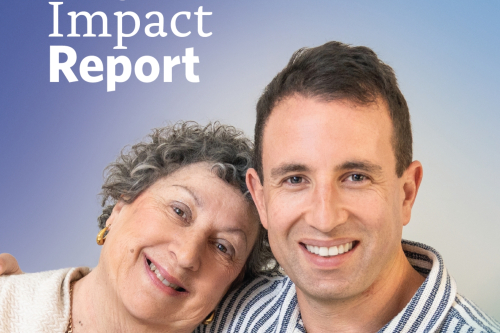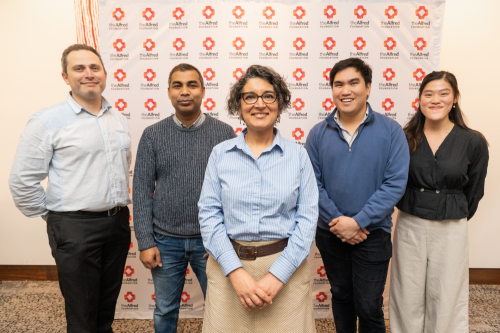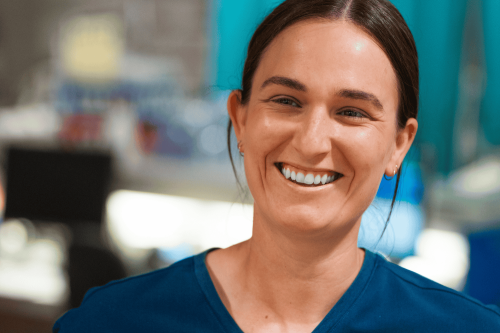Out of the box thinking
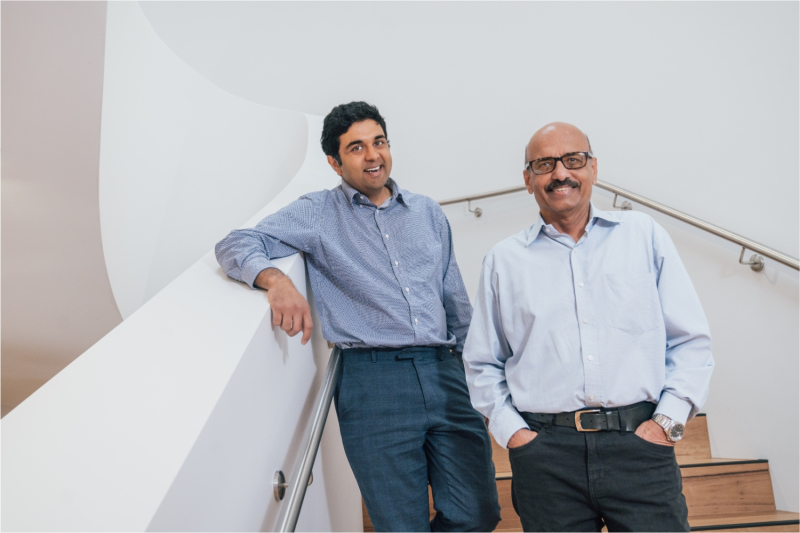
It may look like just an ordinary black box, but this cutting-edge machine could lead to remarkable discoveries in cancer research through its capabilities in synthetic biology and genetic engineering.
The first-of-its-kind in Australia and one of a handful around the world, this Telesis BioXp 3250 DNA printer is in operation at The Alfred.
The automated printer streamlines the synthesis of DNA and mRNA fragments, allowing researchers to generate custom constructs swiftly, providing for rapid cancer monitoring and discovery research.
Associate Professor Vivek Naranbhai, who is a Medical Oncologist and the Laboratory Head of Translational Immunology at The Alfred, said having this technology was vital in breaking further ground in cancer research.
“One of the frustrations of modern biology is that it requires you to manipulate DNA and mRNA sequences to understand how the system works and make new therapies,” he said.
“DNA and mRNA is the language of biology – just like letters and numerals are the language of English, for example.
“Once you have a mutation driving a new cancer, you’ve got to be able to understand how it works by comparing a cell with the mutation and one without.
“This machine can stitch pieces of DNA together to rapidly make 32 new DNA constructs in a night – it allows us to create synthetic biology.
“You can see what would happen if you take a T-cell receptor that’s involved in fighting cancers or viruses and mutate it – see if you can make it better, or what makes it worse.
“If we make it better, we can turn it into a drug. It allows us to really supercharge our efforts around making new therapies to harness the immune system around cancer.
“Put simply, it levels the playing field.
“It is a boring black box, but it can do crazy stuff and that’s a cool thing.”
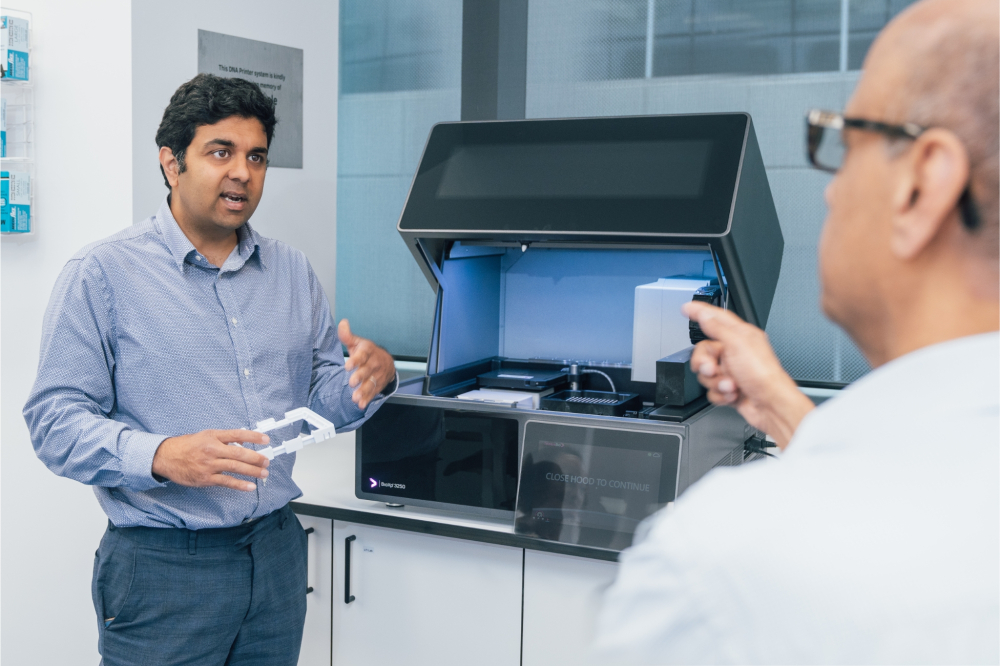
Krishna Bhalerao donated the funds for the technology on behalf of his wife and “soul mate”, Saroj Godbole, who died from cancer last year.
“We always had an affinity with The Alfred, so the first thought in my mind was that cancer had to be treated and some people would benefit if I donated something worthwhile,” he said.
“The Alfred was our first encounter with any hospital experience. We were astounded by the quality of care that was given to us and the compassion of the nurses.”
Saroj was born and brought up in Pune, India, attaining a degree in mathematics. After learning computer programming in England, she returned to India and headed a computer consultancy, also teaching and spreading computer language before moving to Melbourne to join Krishna.
Here she also headed computer consultancy divisions in two companies and was also on the Review Panel of the Victorian Government.
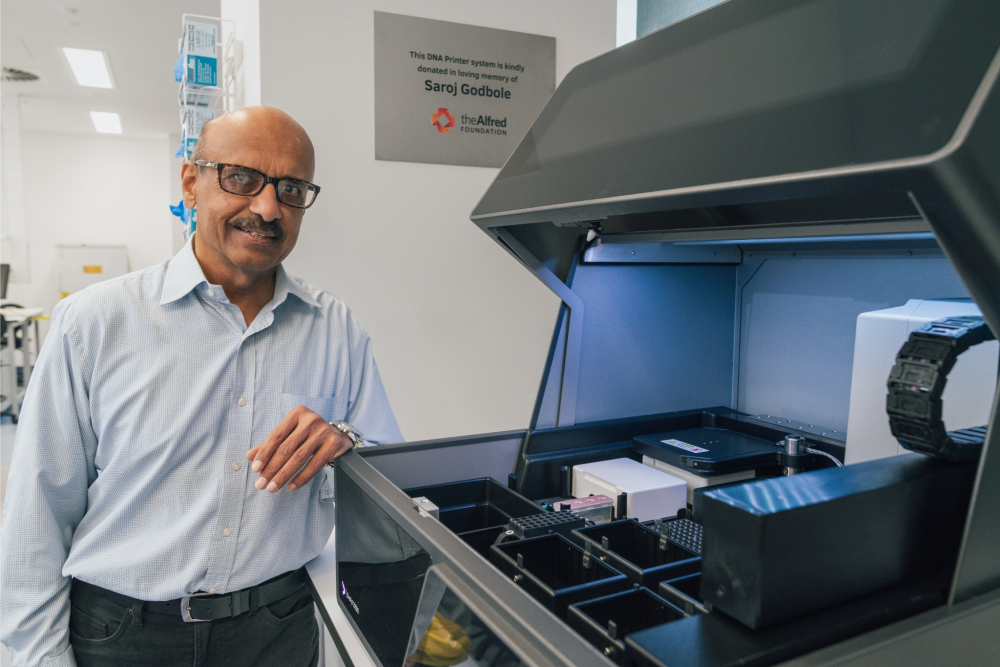
“She was a born leader, quick-witted, loved reading, enjoyed music, was a keen supporter of the Indian and Australian cricket teams and was a passionate supporter of the Essendon AFL team,” Krishna said. “Everyone loved her because of her helpful and compassionate nature.”
Receiving donations like the one received from Krishna was incredibly moving, Associate Prof Naranbhai said.
“I feel deeply accountable to Krishna to make sure that we do something good out of this. Wanting to make a contribution that was foundational, I understood that,” he said.
“Donors play a major role in allowing The Alfred to fulfil its mission; to help patients get the best care.”
Associate Prof Naranbhai said The Alfred was the perfect place for such a technology.
“It is a public hospital with a major research interest, linked to a university, with the brand new cancer centre, with great people and great scientists, all in the same place,” he said.
“Having philanthropy support that is essential for realising the nascent potential that is there in the Paula Fox Melanoma and Cancer Centre to make outsized discoveries that will have global impact.”
To read and download the 2024 Impact magazine, in which this story was printed, visit here.

